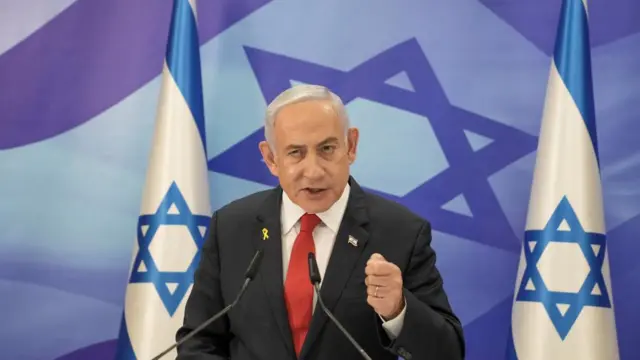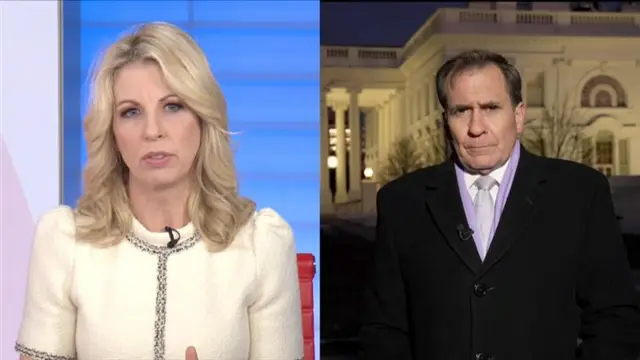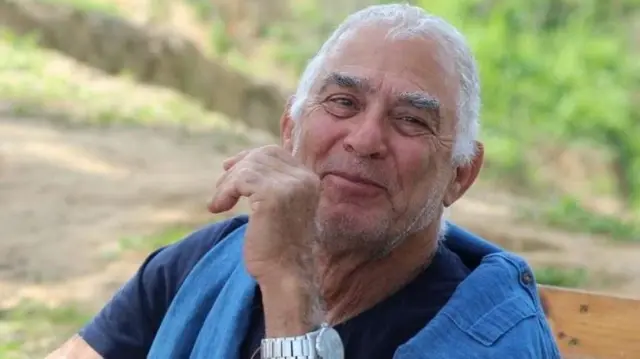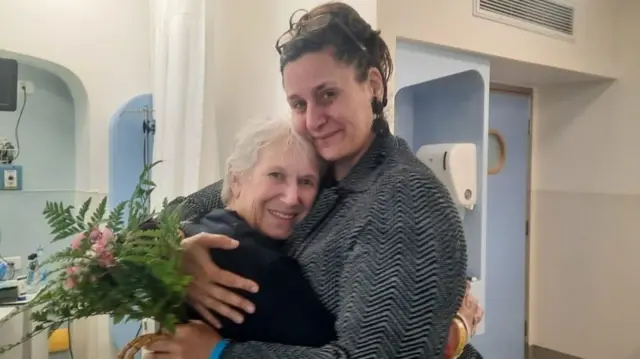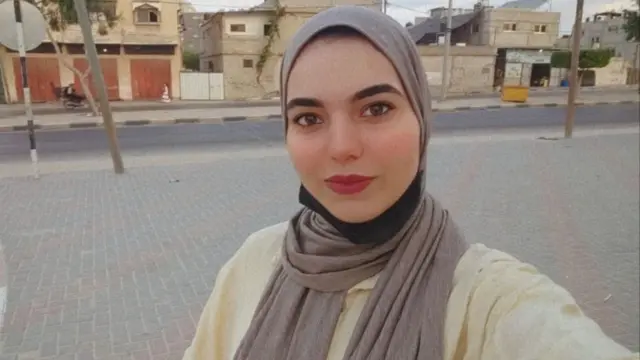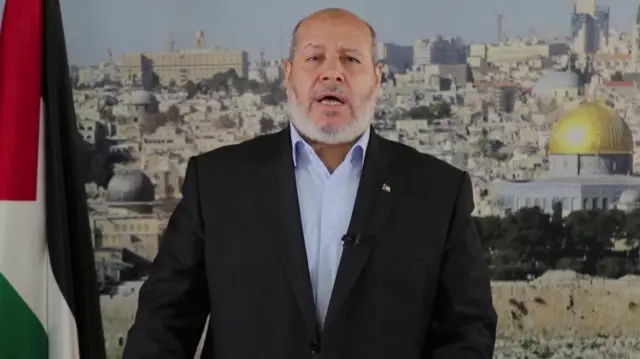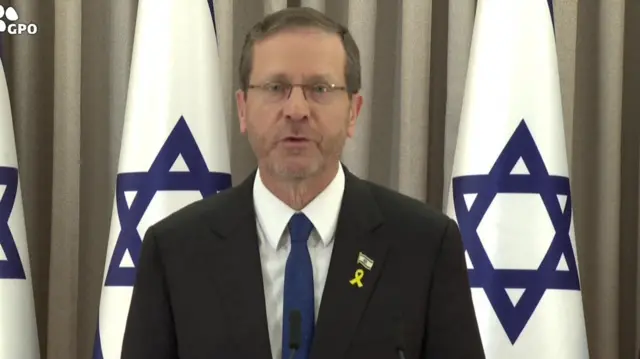Hostage's relative hopes for his return - with reservationspublished at 00:23 GMT 16 January
The BBC has reconnected with Stephen Brisley, a man who had three family members murdered by Hamas - one of them his sister - during the 7 October attacks.
Another relative of Brisley's, Eli Sharabi, was kidnapped in the attacks. Brisley hopes to connect with him soon, after the hostages are released as part of the ceasefire deal.
But after more than a year of waiting for his return, and a rollercoaster ride of emotions, his optimism following Wednesday's deal is reserved.
"There's a long road between the announcement of a deal and hostages actually setting foot back on Israeli soil," he says.
"This is the moment that we've been waiting for twelve, fourteen months for, but it's difficult bearing in mind all of the false dawns we've had before, to get too elated about it. And we don't actually know whether Eli is alive or dead, even."
